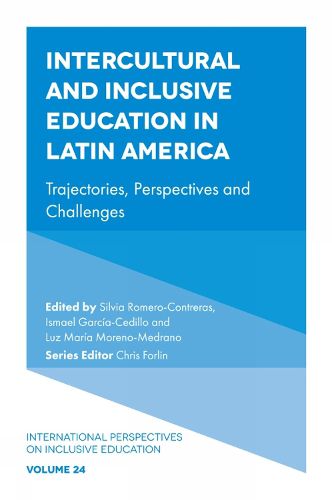Readings Newsletter
Become a Readings Member to make your shopping experience even easier.
Sign in or sign up for free!
You’re not far away from qualifying for FREE standard shipping within Australia
You’ve qualified for FREE standard shipping within Australia
The cart is loading…






Quality education is a human right and all individuals and peoples regardless of their social, ethnic, personal, economic, gender, or religion, should be able to participate and engage in productive and lifelong learning. This volume explores the ways in which intercultural and inclusive education have been addressed in Latin America through small, local, or nation-wide programs to improve peoples' experiences regarding diversity, such as racism, classism, meritocracy, and redefines the priorities to advance on the quality of education for all.
Key international authors contribute chapters on the history, status, and challenges of intercultural and inclusive education in a specific country or region in Latin America. Intercultural and Inclusive Education in Latin America: Trajectories, Perspectives and Challenges focuses on the history and advances in public policies, teaching practices, educational programs, as well as new methodologies and theoretical perspectives to understand the Latin American context and offer culturally appropriate alternatives to respond to old and emerging socio-educational needs.
Providing a unique convergence of multiple perspectives, this collection incorporates diverse epistemologies, research approaches, and intervention practices, across a variety of educational and social contexts in the Latin American region.
$9.00 standard shipping within Australia
FREE standard shipping within Australia for orders over $100.00
Express & International shipping calculated at checkout
Quality education is a human right and all individuals and peoples regardless of their social, ethnic, personal, economic, gender, or religion, should be able to participate and engage in productive and lifelong learning. This volume explores the ways in which intercultural and inclusive education have been addressed in Latin America through small, local, or nation-wide programs to improve peoples' experiences regarding diversity, such as racism, classism, meritocracy, and redefines the priorities to advance on the quality of education for all.
Key international authors contribute chapters on the history, status, and challenges of intercultural and inclusive education in a specific country or region in Latin America. Intercultural and Inclusive Education in Latin America: Trajectories, Perspectives and Challenges focuses on the history and advances in public policies, teaching practices, educational programs, as well as new methodologies and theoretical perspectives to understand the Latin American context and offer culturally appropriate alternatives to respond to old and emerging socio-educational needs.
Providing a unique convergence of multiple perspectives, this collection incorporates diverse epistemologies, research approaches, and intervention practices, across a variety of educational and social contexts in the Latin American region.